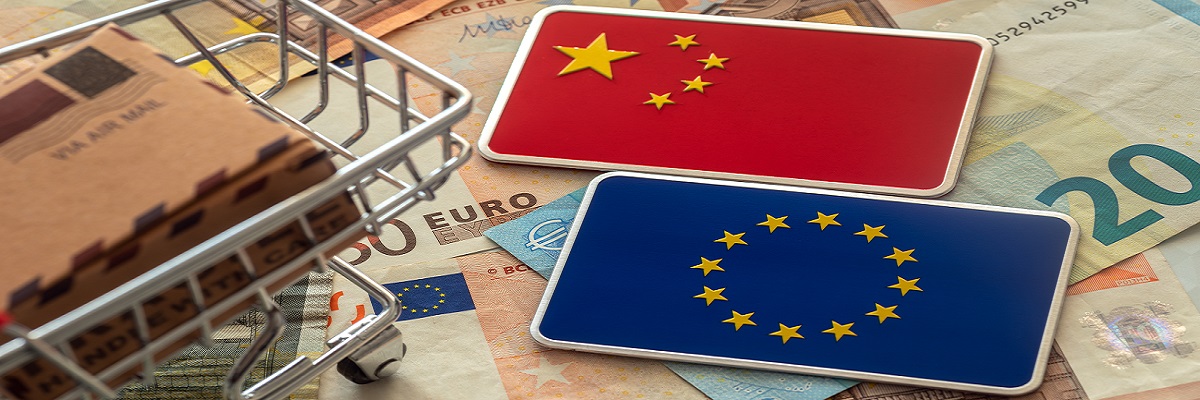Energy & Economics
Overcoming an EU-China trade and trust deficit

Image Source : Konektus Photo / Shutterstock
Subscribe to our weekly newsletters for free
If you want to subscribe to World & New World Newsletter, please enter
your e-mail
Energy & Economics

Image Source : Konektus Photo / Shutterstock
First Published in: Dec.06,2023
Dec.29, 2023
Beijing seeks normalisation of ties with Europe; however, for Brussels, reconciliation will be conditional on Beijing’s willingness to address fundamental divergences On 7-8 December, European Commission President von der Leyen and European Council President Charles Michel will be in Beijing for the 24th European Union (EU)-China summit, but the first in-person one in four years, taking place at a critical juncture in EU-China ties. At the previous EU-China virtual summit in April 2022, the Ukraine conflict was the primary talking point for the Europeans and other issues such as climate and economics were relegated to the back burner. This time, the focus is likely to be economics. A relatively constructive meeting between United States (US) President Joe Biden and Chinese President Xi Jinping on 15 November, which led to the resumption of US-China high-level military dialogue and Xi’s assurances on Taiwan, has contributed to paving the way for the EU to focus on ironing out economic irritants.
With daily EU-China trade amounting to 2.2 billion euros, the EU is concerned about its widening goods trade deficit with China—400 billion euros in 2022—referred to by EU Ambassador to China, Jorge Toledo, as the “highest in the history of mankind”. In the context of China’s restrictive environment for foreign companies, the EU is keen for a level playing field and greater reciprocity in trade. Another major area of contention is Chinese overcapacity through subsidies in key industrial export sectors such as electric vehicles (EVs) that are undermining European automotive industries. The European Commission has already launched a probe for the EVs sector and is now considering other major sectors including wind energy and medical devices. In addition, Europe is heavily dependent on critical raw materials such as lithium and gallium from China, which are intrinsic to its green transition. While over 90 percent of the EU’s supply of raw materials comes from China, the EU aims to address this dependency through its Critical Raw Materials Act. Factors such as Chinese aggression in the South China Sea, human rights violations in Xinjiang, and pandemic-era supply chain disruptions have deteriorated European perceptions of China. The downswing in EU-China ties was further accentuated by Beijing’s posture in the Russia-Ukraine conflict and the failure of European leaders to coax China to positively use its influence with the EU’s most immediate security threat, Moscow. Thus, a major trust deficit has accompanied the trade deficit. On 6 November, only a month before the summit, von der Leyen in her speech warned against “China’s changing global posture” with its “strong push to make China less dependent on the world and the world more dependent on China”. While acknowledging China as Europe’s most important trading partner, she emphasised the “explicit element of rivalry” in the relationship.
The EU and its member states are recalibrating their China policies, with countries such as Germany even releasing China-specific documents outlining their approach. The EU’s “de-risking” strategy aims to reduce dependencies in critical sectors, and through an expansion of its policy toolbox, the Union is implementing a range of measures including greater scrutiny of inbound-outbound foreign investments, anti-coercion instruments, and export controls for dual-purpose technologies. In this context of an evolving European approach, the upcoming summit is a much-anticipated one for EU-China watchers. Despite the strain in relations, high-level diplomatic exchanges have continued in full swing, many of which, such as von der Leyen’s visit to China in April, EU Trade Commissioner Valdis Dombrovskis’s visit in September, and EU Foreign Policy Chief Josep Borrell’s visit in October were conducted in preparation for this summit. A sluggish Chinese economy gives Europe room to wield its economic leverage. However, grey areas in Europe’s China policy remain, especially with regard to the implementation of measures and the need for more effective coordination, often compromised by a lack of unity amongst member states and tendencies of leaders such as French President Emmanuel Macron and German Chancellor Olaf Scholz to prioritise business interests over all else. Thus, straddling the fine balance between economic opportunities and security risks will continue to be a test for how Europe manages its interdependence with the lucrative Chinese market. Previous EU-China summits have not produced a joint statement, and according to sources, this summit is unlikely to produce one as well. Yet it is an opportunity for the EU to put forward unresolved concerns and forge some common ground. Without concrete deliverables, the upcoming summit risks being another “dialogue of the deaf” as Borrell famously described the previous one. Amidst renewed transatlantic solidarity, Beijing’s rhetoric indicates that it seeks normalisation of ties with Europe and a more independent European policy towards China away from Washington’s influence. Yet for Brussels, reconciliation will be conditional on Beijing’s willingness to address fundamental divergences.
First published in :

Shairee Malhotra is Associate Fellow at ORF in India. Her areas of work include Indian foreign policy with a focus on EU-India relations, broader strategic developments within Europe, and European politics - both at member state and EU level. Shairee has several years experience working in Brussels - the headquarters of the European Union, at the European Institute for Asian Studies (EIAS), and at the European External Action Service (EEAS) - the official foreign policy arm of the EU - where she was selected at a success rate of only 1% for non-EU nationals.
Unlock articles by signing up or logging in.
Become a member for unrestricted reading!